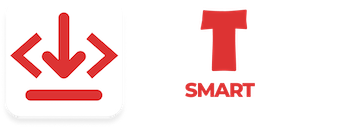
Data Analysis & Visualization: Python | Excel | BI | Tableau
Connect to data, clean & transform data, analyze and visualize data.
What you’ll learn
Data Analysis & Visualization: Python | Excel | BI | Tableau
- Connect to Kaggle Datasets
- Explore Pandas DataFrame
- Analyze and manipulate Pandas DataFrame
- Data cleaning with Python
- Data Visualization with Python
- Connect to web data with Power BI
- Clean and transform web data with Power BI
- Create data visualization with Power BI
- Publish reports to Power BI Service
- Transform less structured data with Power BI
- Connect to the data source with excel
- Prep query with excel Power query
- Data cleaning with excel
- Create data model and build relationships
- Create lookups with DAX
- Analyze data with Pivot Tables
- Analyze data with Pivot Charts
- Connect to data sources with Tableau
- Join related data and create relationships with Tableau
- Data Cleaning with Tableau
- Data analysis with Tableau
- The Data visualization with Tableau
Requirements
- Computer with internet access required.
Description
As a data analyst, you are on a journey. Think about all the data that is being generated each day and that is available in an organization, from transactional data in a traditional database, telemetry data from services that you use, to signals that you get from different areas like social media.
For example, today’s retail businesses collect and store massive amounts of data that track the items you browsed and purchased, the pages you’ve visited on their site, the aisles you purchase products from, your spending habits, and much more.
With data and information as the most strategic asset of a business, the underlying challenge that organizations have today is understanding and using their data to positively affect change within the business. Businesses continue to struggle to use their data in a meaningful and productive way, which impacts their ability to act.
The key to unlocking this data is being able to tell a story with it. In today’s highly competitive and fast-paced business world, crafting reports that tell that story is what helps business leaders take action on the data. Business decision-makers depend on an accurate story to drive better business decisions. The faster a business can make precise decisions, the more competitive it will be and the better advantage it will have. Without the story, it is difficult to understand what the data is trying to tell you.
However, having data alone is not enough. You need to be able to act on the data to effect change within the business. That action could involve reallocating resources within the business to accommodate a need, or it could be identifying a failing campaign and knowing when to change course. These situations are where telling a story with your data is important.
Python is a popular programming language.
It is used for:
- web development (server-side),
- software development,
- mathematics,
- Data Analysis
- Data Visualization
- System scripting.
- Python can be used for data analysis and visualization.
Data analysis is the process of analyzing, interpreting, data to discover valuable insights that drive smarter and more effective business decisions.
The Data analysis tools are used to extract useful information from business and other types of data, and help make the data analysis process easier.
Data visualization is the graphical representation of information and data.
By using visual elements like charts, graphs, and maps, data visualization tools
provide an accessible way to see and understand trends, outliers, and patterns in data.
The Jupyter Notebook is an open-source web application that allows you to create and share documents that contain live code, equations, visualizations, and narrative text. Uses include data cleaning and transformation, numerical simulation, statistical modelling, data visualization, machine learning, and much more.
Power BI is a collection of software services, apps, and connectors that work together to turn your unrelated sources of data into coherent, visually immersive, and interactive insights. Your data may be an Excel spreadsheet or a collection of cloud-based and on-premises hybrid data warehouses. Power BI lets you easily connect to your data sources, visualize and discover what’s important, and share that with anyone or everyone you want.
Power BI consists of several elements that all work together, starting with these three basics:
- A Windows desktop application called Power BI Desktop.
- An online SaaS (Software as a Service) service is called the Power BI service.
- Power BI mobile apps for Windows, iOS, and Android devices.
These three elements—Power BI Desktop, the service, and the mobile apps—are designed to let you create, share, and consume business insights in a way that serves you and your role most effectively.
Beyond those three, Power BI also features two other elements:
- Power BI Report Builder, for creating paginated reports to share in the Power BI service. Read more about paginated reports later in this article.
- Power BI Report Server, an on-premises report server where you can publish your Power BI reports, after creating them in Power BI Desktop.
Tableau is a widely used business intelligence (BI) and analytics software trusted by companies like Amazon, Experian, and Unilever to explore, visualize, and securely share data in the form of Workbooks and Dashboards. With its user-friendly drag-and-drop functionality it can be used by everyone to quickly clean, analyze, and visualize your team’s data. You’ll learn how to navigate Tableau’s interface and connect and present data using easy-to-understand visualizations. By the end of this training, you’ll have the skills you need to confidently explore Tableau and build impactful data dashboards.
Who this course is for:
- Beginner Data Analyst
- Beginner Data Scientist
- The Beginner Data Engineer
- Last updated 7/2021
Data Analysis & Visualization: Python | Excel | BI | Tableau
Content From: https://www.udemy.com/course/data-analysis-visualization-python-excel-bi-tableau/












Add Comment